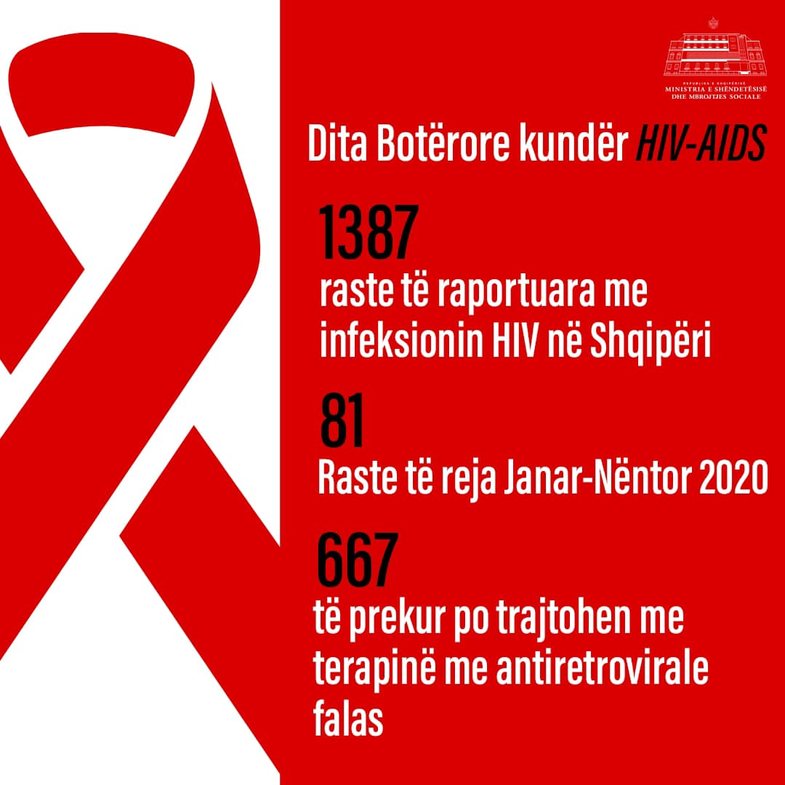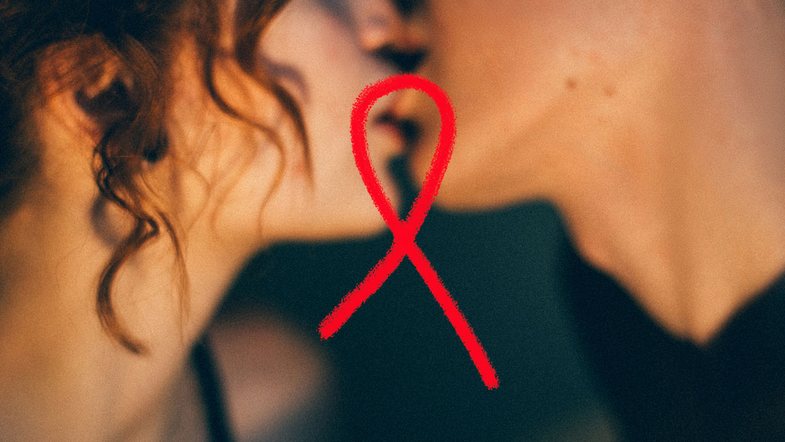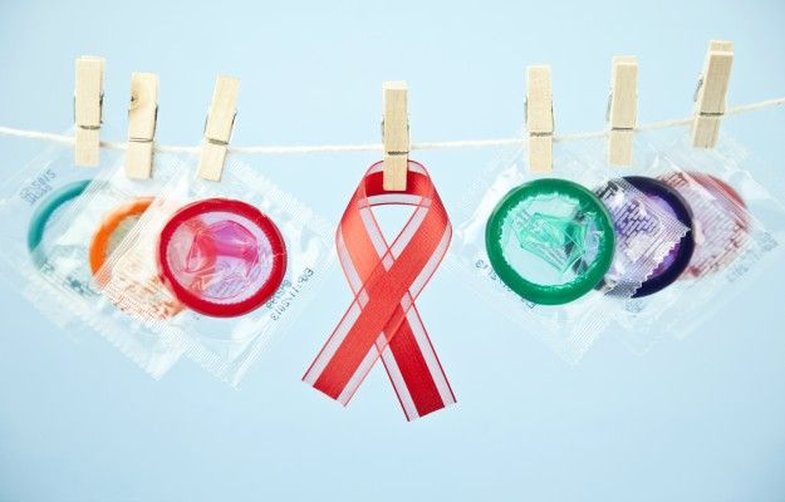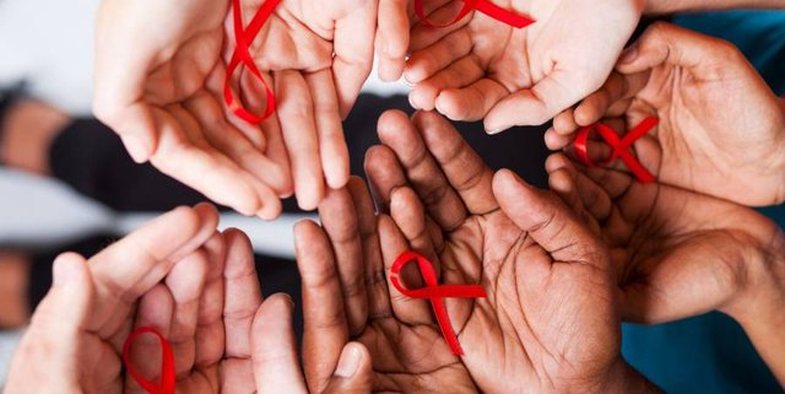
"Even in this difficult year, we have guaranteed full treatment therapy for everyone affected by HIV-AIDS, under the exemplary care of our medical teams, who have not stopped treatment for a moment, despite the unusual situation of the epidemic." wrote the Minister of Health and Social Protection, Ogerta Manastirliu, in the framework of the World AIDS Day.

What is HIV?
HIV (Human Immunodeficiency Virus) is a virus that significantly affects and weakens the immune system of the human body leaving it unprotected from various infections or types of cancer. HIV gradually destroys and impairs the function of immune cells.

What is AIDS?
AIDS (Acquired Immune Deficiency Syndrome) refers to the most advanced stage of HIV infection where the damage is irreversible and the body is no longer able to respond to dangerous agents. Therefore HIV is not synonymous with AIDS (otherwise AIDS), a person infected with the HIV virus is not necessarily sick with AIDS.

Under what conditions does the risk of becoming infected with HIV increase?
- unprotected, vaginal or anal sex;
- sexually transmitted infections such as syphilis, herpes, chlamydia, gonorrhea, etc .;
- exchange of contaminated needles, syringes and other equipment while taking drugs;
- accidental needle drilling;
- transmission from an infected mother to her child during pregnancy, childbirth and breastfeeding.
The virus is NOT transmitted through kissing, hugging, touching, shaking hands, sneezing or coughing.

What are the signs of AIDS?
Many people living with HIV, in the first months after infection, have no obvious signs and are unaware of their condition / positive status until late stages.
It can generally take 2 to 15 years for the signs to develop, from the moment of infection to their onset, depending on the person. The exact time from the moment of HIV infection to the development of the disease and the appearance of signs is impossible to calculate.
This time is different for different people and depends on lifestyle, nutrition, therapy and social and psychological support.
In the first few weeks after the initial infection, these people may have no symptoms or may show flu-like symptoms, including fever, headache, rash, or sore throat. Subsequently, with the progressive weakening of the immune system, the infection progresses and a person may also develop other signs which vary depending on the stage of the infection.
The most common signs are: swollen lymph nodes, severe weight loss, severe weakness, persistent fever / chills, persistent diarrhea, cough, etc. Without treatment, they can develop serious diseases such as tuberculosis, meningitis and various cancers.

How is HIV / AIDS diagnosed?
Various tests are available today to detect the presence or absence of HIV antibodies. HIV infection is usually detected through blood tests which detect antibodies produced by a person as part of his immune system to fight HIV infection.
Shumica e këtyre personave i zhvillojnë këto antitrupa brenda 28 ditësh, dhe për këtë arsye antitrupat mund të mos kapen menjëherë pas infeksionit. Kjo periudhë e hershme e infeksionit quhet periudha dritare dhe përfaqëson kohën edhe rrezikun më të madh të transmetimit të infeksionit.
Megjithatë transmetimi i HIV-it mund të ndodhë gjatë të gjitha fazave të infeksionit.
Ritestimi i të gjithë personave që diagnostikohen fillimisht me HIV-pozitiv, është praktikë e mirë për të përjashtuar çdo gabim të mundshëm testimi apo raportimi.

Si parandalohet?
- përdorimi i prezervativit/kondomit gjatë marrëdhënieve seksuale ndihmon në mbrojtjen e infeksioneve seksualisht të transmetueshme duke përfshirë këtu edhe HIV;
- realizimi i rrethprerjes mashkullore (syneti) zvogëlon rrezikun e infektimit tek burrat;
- mospërdorimi i shiringave të njëjta dhe mjeteve të tjera
- marrja e barnave specifike gjatë kohës së shtatzënisë në mënyrë që të mos transmetohet tek fëmija etj.

Si trajtohet AIDS-i?
Me gjithë përpjekjet e shkencëtarëve, për momentin nuk ka akoma një mjekim specifik apo vaksinë për infeksionin HIV. Por, fatmirësisht sot ekzistojnë trajtime efektive me barna antiretrovirale (ARV) të cilat mundësojnë ngadalësimin e përhapjes së virusit HIV.
Antiretroviral drugs do not cure HIV infection but control the spread of the virus inside a person and enable their immune system to regain its capacity to fight infections. ARV treatment prolongs the life of patients and increases its quality, turning AIDS into a chronic disease.
Source: Institute of Public Health / updated *





